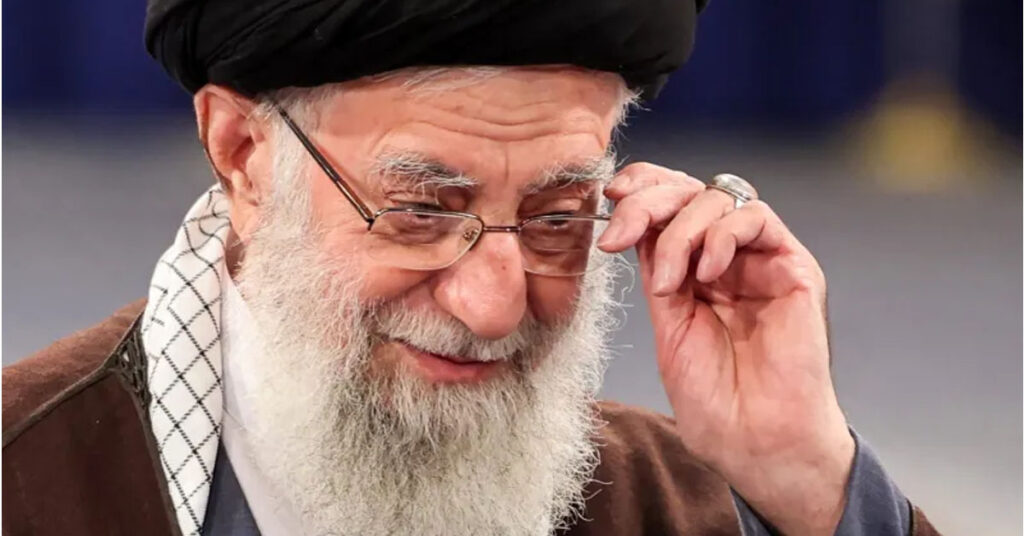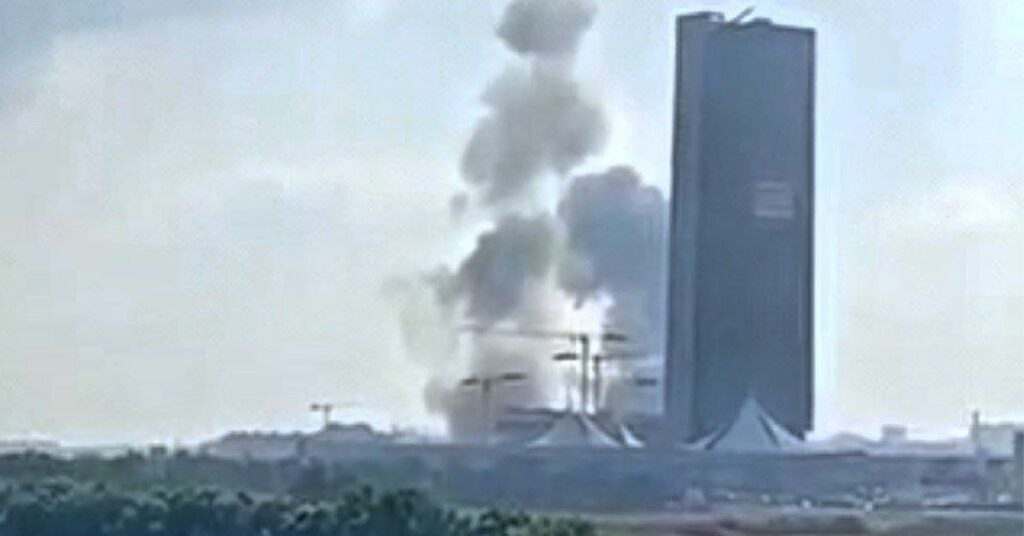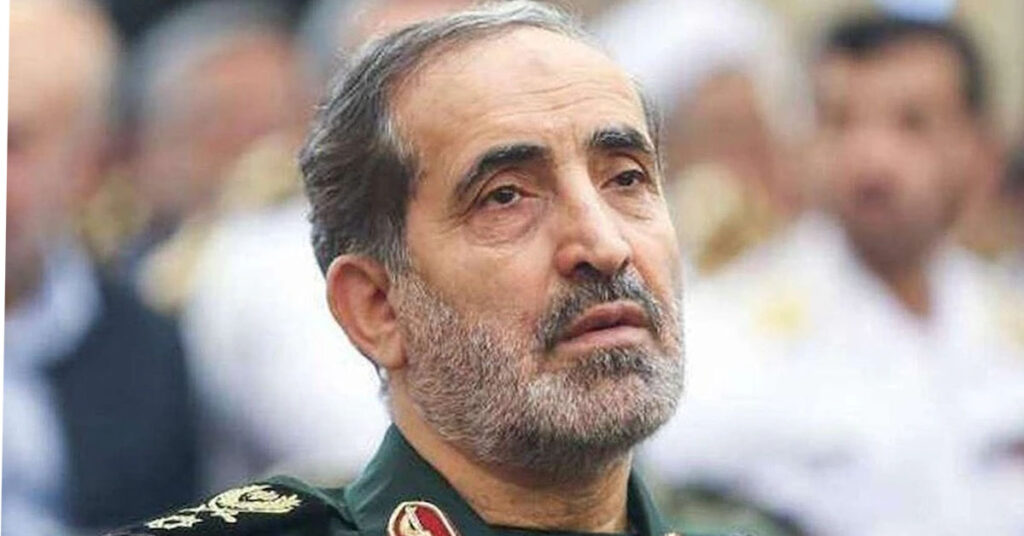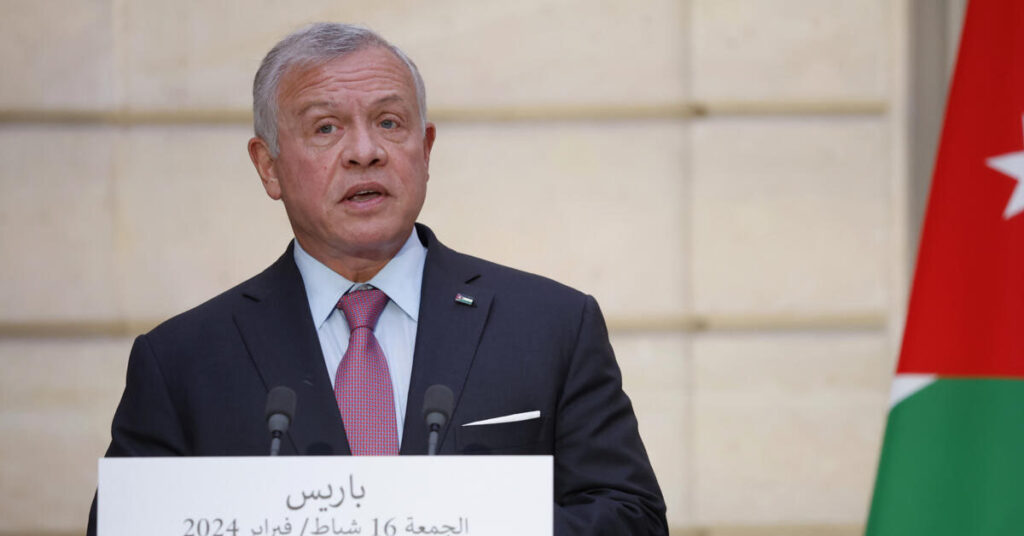Trump Claims Full Control of Iranian Airspace Amid Ongoing Conflict
As the Israel-Iran conflict rages into its fifth day, U.S. President Donald Trump has made a startling declaration: America now holds total control over Iranian airspace. The bold claim has sparked fresh speculation about direct American involvement in Israeli military operations against Iran.
Table of Contents
In a series of late-night posts on his social media platform, Truth Social, Trump wrote, “We now have complete control over the skies of Iran. We know exactly where the Supreme Leader is hiding—it would be very easy to eliminate him, but we won’t. At least not right now.”

In a final, more cryptic post, the President simply wrote: “Unconditional surrender.” This terse message has been widely interpreted as a direct demand for Iran to lay down arms, particularly in its ongoing confrontation with Israel.
Iran Targets Mossad Headquarters in Bold Airstrike on Tel Aviv
In response to escalating Israeli strikes, Iran launched a powerful counterattack on Tuesday, striking what it claimed to be the headquarters of Mossad, Israel’s elite intelligence agency, in Tel Aviv. Additionally, Iran targeted a building associated with Israel’s military intelligence unit, AMAN.

These attacks mark a significant escalation in Tehran’s military engagement, indicating its intent to directly challenge Israel’s intelligence infrastructure. The strikes also underscore the risk of the conflict spiraling into a broader regional war involving multiple state and non-state actors.
Israeli Strikes Kill Iran’s Deputy Commander in Escalating Retaliation
Israel, in turn, has intensified its aerial offensive. One of the most notable outcomes of the latest strikes was the killing of Major General Ali Shadmani, deputy commander of Iran’s Khatam al-Anbiya Headquarters—the nation’s emergency military command center. Shadmani had assumed his post only four days earlier, succeeding Major General Gholam Ali Rashid, who was killed in an Israeli attack on June 13.

The Khatam al-Anbiya unit is Iran’s central military command, responsible for national wartime strategy and air defense operations. Its leadership being targeted in quick succession underscores Israel’s focused effort to dismantle Iran’s core military leadership.
Over 220 Iranians Dead, Internet Disrupted as War Enters Fifth Day
According to official estimates, at least 224 Iranians have been killed and 1,481 injured in Israeli airstrikes since the conflict began five days ago.
Amid the chaos, reports from Iranian media confirm widespread internet disruptions across the country. While the government has not issued an official statement, Tehran and several other regions have experienced severe connectivity issues, compounding the difficulties faced by civilians.
Simultaneously, massive explosions were heard on Tuesday night in central and western Tehran. The exact targets remain unclear, but speculation suggests they were linked to Israeli retaliation.
IDF Vows to Cripple Iran’s Nuclear Program Within Two Weeks
The Israeli Defense Forces (IDF) announced plans to achieve their core military objective—neutralizing Iran’s nuclear capabilities—within the next one to two weeks. The military campaign, launched on June 13, targets both Iran’s nuclear infrastructure and its ballistic missile facilities.
An IDF spokesperson said, “We are strategically dismantling the threat posed by Iran’s nuclear and missile ambitions. Within two weeks, our objectives will be met.” The statement highlights Israel’s urgent and uncompromising approach to national defense amid rising tensions.
Jordan’s King Warns Israel’s Attack on Iran Threatens Regional Stability
Speaking at the European Parliament in Strasbourg on Tuesday, Jordan’s King Abdullah II warned that Israel’s military offensive on Iran represents a dangerous turning point for the Middle East. “It’s hard to predict where this battlefield will end,” he cautioned.

The Jordanian monarch expressed grave concern over the normalization of violence in modern warfare. “What kind of humanity permits violence as a norm, uses starvation as a weapon against children, and targets healthcare workers, journalists, and civilians seeking refuge?” he asked.
His comments reflect growing international unease over the escalating hostilities and their potential to ignite a broader regional conflict involving Gulf states, NATO, and possibly Russia or China.
Civilians Flee Tehran as Warfront Creeps Closer
With missile attacks becoming a daily reality in the Iranian capital, thousands of residents have begun fleeing Tehran for safer areas. Visuals from June 16 show long lines of cars on highways heading out of the city, as fear of an Israeli ground invasion mounts.
Meanwhile, footage from Israel’s cities paints a grim picture—emergency teams continue to comb through bombed-out buildings in Tel Aviv and Bnei Brak, while local news shows anchors fleeing studios amid live air raids.
A Crisis at a Tipping Point
With U.S. President Trump signalling strategic control over Iranian skies, Israel vowing a swift takedown of Iran’s nuclear infrastructure, and Iran directly targeting key Israeli intelligence assets, the Middle East stands on the brink of a major transformation. As international leaders call for de-escalation, the question remains: who will blink first?
Trump Iran airspace, Israel Iran war 2025, Iran missile attack Tel Aviv, IDF Iran nuclear threat, Mossad HQ airstrike, Tehran bombings, Middle East conflict, King Abdullah EU speech, internet shutdown Iran, Ali Shadmani death










